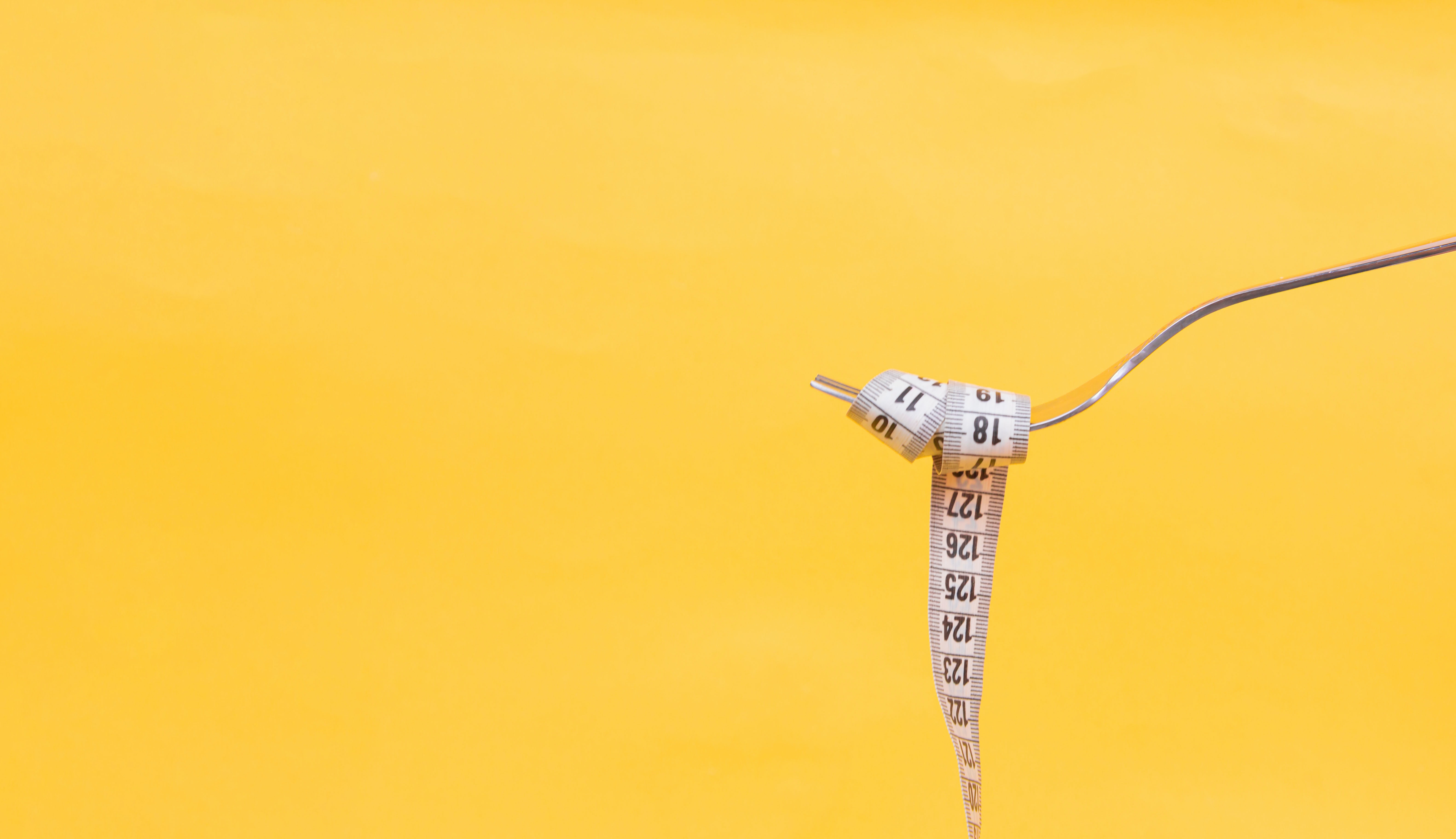Does perimenopause cause weight gain and belly fat – and what can I do about it?
5 months ago
Perimenopause5 months ago
Perimenopause
If you’ve noticed that your body shape has changed over the past few years (despite exercising just as much as you always have), you may be wondering what the heck is going on. Here, we discuss whether science, stress or socialising is to blame. Plus, we discover some smart strategies for preventing perimenopause weight gain…
Reviewed by: Dr Emma Ross.
Do you feel like it’s getting harder and harder to keep the weight off as you get older? Then you’re not alone. Researchers have found that the average person weighs 0.5 to 1kg more each year after the age of 30. But if we look specifically at perimenopausal women, it’s estimated that the gain is between 1 and 2.5 kgs during the perimenopausal transition.
So, is the extra weight a natural part of the ageing process more generally or is perimenopause specifically to blame for women? To get the lowdown, we ask Jennis physiologist, Dr Emma Ross, to explain all.
“ Research has found that the perimenopause can affect both your body shape and your body composition,” says Dr Emma. The main reason for this is the chaotic hormonal changes that take place, which alter the way you store fat on the body, causing you to hold extra weight in your abdomen, rather than around your hips and thighs.
“When we’re in puberty, our sex hormones (oestrogen, along with FSH and LH) arrive on the scene and tell our bodies where to store fat cells,” says Emma. “For girls, it's in the hips and breasts, giving us a naturally curvy shape in preparation for safely carrying a baby.”
From the perimenopause and beyond, because oestrogen is declining in the body, we tend to distribute and settle our fat in-line with male patterns
For boys, the hormonal signals are different, “which is why, if a man gains weight, they’ll usually find it's stored in the tummy, rather than the hips and thighs,” Emma adds.
From the perimenopause and beyond, because oestrogen is declining in the body, we tend to distribute and settle our fat in-line with male patterns. Where once it was spread evenly over hips, bottom, thighs and arms, it goes straight to our tummy - hence the well-used phrase ‘middle-aged spread’.
“Some research also shows that ghrelin - the hormone that’s related to making you feel hungry - is higher in perimenopausal women, too, so we have greater appetite during these years, and our feelings of fullness might also be impaired,” says Emma.
Aside from our hormones playing tricks on us, there are other reasons you might gain weight during the perimenopause.
Moving less: “By the time we reach our 40s or 50s, because of time pressures and busy lives, we might be working out and moving less, which can contribute to gradual weight gain,” says Emma.
More stressed: “During the perimenopause, the body is in a state of stress, making it more difficult to process cortisol. We also know that chronically elevated levels of cortisol have been linked to both inflammation and weight gain,” adds Emma.
The good news is that it’s not all doom and gloom. Because your body no longer operates in the same way it did in your 20s, you just need to know how to work with your body in a completely new way
Insulin resistance: As oestrogen and progesterone levels go up and down during the transition to menopause, your blood sugar levels can also rise and fall. And guess what? Elevated levels of insulin can cause weight gain.
Poor sleep: Thanks to night sweats and anxiety, many women have trouble sleeping during menopause. When we sleep badly consistently, we often reach for comfort food, exercise goes out the window, stress is exacerbated – all of which is linked to weight gain and obesity.
Slower metabolism and loss of muscle mass: “As we age, our metabolism naturally slows, making it harder to burn calories overall,” notes Dr Emma. Plus, we lose muscle mass – known as sarcopenia – at around 8% per decade after the age 40.
Alcohol sensitivity: Women become more sensitive to alcohol during the perimenopause years. Not only does it have a bigger impact on our sleep and stress (which are linked to weight gain), alcohol also prevents your body from efficiently burning fat and can be high in liquid calories.
As you can see, there are lots of factors that can drive weight gain in our 30s, 40s and 50s, some of which are related to perimenopause and some that are just a natural part of getting older. Add them all together, however, and it’s no surprise that it can be harder to shift extra weight than it was in our 20s, say.
The good news is that it’s not all doom and gloom. Because your body no longer operates in the same way it did in your 20s, because your hormones are acting very differently, you just need to know how to work with your body in a completely different way, too. And we’ll show you how.
Sign up to the perimenopause newsletter and waitlist here
1) Add smart strength and resistance sessions into your training
Over the age of 30, our muscle mass decreases by 3-8% each decade. Because of this, instead of stressing your body out with all-out cardio sessions, you’ll see better gains by focusing on slow and controlled strength training.
This doesn’t mean you have to go super-heavy on the barbells (although you definitely can). By simply incorporating hand weights into your routine or making sure your HIIT sessions feature bodyweight resistance exercises, you’ll be adding load, which will help to maintain and increase muscle mass.
The other benefits of strength training are that it changes your body composition (that thing we mentioned earlier), increasing lean muscle mass and reducing your overall fat percentage. It also produces a better metabolic reaction than cardio, resulting in a higher calorie burn in the hours after your workout has finished. Win, win, win!
2) Reduce ongoing stress
On top of juggling careers and family life, turbulent menstrual cycle hormones can leave our bodies in a stressed and inflamed state.
Chronic levels of stress affect your metabolism and your appetite, resulting in weight gain, particularly around the midsection.
To counter this, find relaxation techniques that work for you, whether that’s a weekly massage or daily yoga and breathwork sessions.
3) Avoid crash dieting
It can be really tempting to embark on a ‘quick fix’ diet when you can’t shift the weight, but because your body is under stress when you’re perimenopausal, by restricting calories, denying yourself carbs or missing meals, it can actually stress your body more, driving up cortisol levels and making it harder to lose weight overall.
4) Drink tart cherry juice before bed
Poor sleep can slow down your metabolism and wreak havoc on the hormones in your brain that regulate hunger.
Studies show that drinking tart cherry juice can help you to get to sleep quicker and enjoy more quality kip. “Because this juice is high in the sleep-chemical melatonin and it has anti-inflammatory properties, it can help us to get a better night’s rest,” says Emma.
“Try drinking an ice-cold glass 30 minutes before bed, so you can help to bring on that ‘sleepy’ feeling. It may also reduce your core temperature to help with night sweats,” she recommends.
5) Make time for recovery sessions
While you may think fitness and weight loss gains are only made when you're pushing yourself in the gym, because muscle is developed in its 'repair phase', rest is just as important.
Because of this, make sure you’re taking regular rest days between training sessions. If you don’t like the idea of sitting on the sofa, active recovery can be beneficial, too. Walking the dog, gardening or stretching while listening to a podcast are all great ways of getting the blood flowing without spiking your heart rate.
Because your body is in a stressed state during the perimenopause, it’s really important to make time to cool down after any high-intensity exercise, too.
6) Stick to a balanced diet
Eating a healthy diet - with plenty of vegetables, whole grains, fruit, nuts, legumes, seeds, and protein sources - can keep you feeling fuller for longer, reducing the need to snack on sweet treats.
“Focus on eating lots of fibre specifically, as this helps to control your blood sugar and regulates insulin resistance,” says Dr Emma, who adds that protein is important too. “During perimenopause, your body uses protein less effectively, meaning that the type and quality of protein you eat becomes very important for building lean muscle and holding on to it.”
Meat, fish, eggs, nuts, lentils and seeds are all excellent sources of dietary protein.
7) Cut down on alcohol
It can be surprising just how many calories are actually found in drinks such as wine or beer. Drinking half a bottle of vino in the evening can add a whopping 300 calories onto your daily intake. Plus, it puts you at risk of bad sleep and increased stress.
While drinking alcohol may not have had much of a visible effect before, it can cause noticeable weight gain in middle age. The good news is that cutting down is a really simple way to watch your waistline.
Challenge yourself to have drink-free days and keep a record of how much you’re consuming. An evening tipple is a ritual more than anything else, so stock your drinks trolley with non-alcoholic gin, wine and beers so you don't feel like you’re missing out on a nightcap.
If you understand what’s happening to your body, it’s easier to be kinder to yourself and it’s easier to adapt your routine to make the most of you - adding strength work, eliminating stress from your life, ignoring diet fads and seeing rest as part of the bigger picture to stop the stress, which will in turn shift your body composition from fat to muscle.
 Cycle syncing
Cycle syncing Perimenopause
Perimenopause Perimenopause
Perimenopause Perimenopause
PerimenopauseSign up to learn everything you need to know about CycleMapping, plus how you can live better and feel better through optimising your fitness to you.
This website uses cookies to ensure you get the best experience on our website. Learn more

Sign up for the very latest news on women's fitness, health and hormones, plus be the first to receive exclusive offers and extras